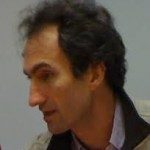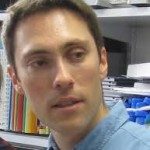Link to Pubmed [PMID] – 15467720
Nat. Genet. 2004 Nov;36(11):1165-73
Legionella pneumophila, the causative agent of Legionnaires’ disease, replicates as an intracellular parasite of amoebae and persists in the environment as a free-living microbe. Here we have analyzed the complete genome sequences of L. pneumophila Paris (3,503,610 bp, 3,077 genes), an endemic strain that is predominant in France, and Lens (3,345,687 bp, 2,932 genes), an epidemic strain responsible for a major outbreak of disease in France. The L. pneumophila genomes show marked plasticity, with three different plasmids and with about 13% of the sequence differing between the two strains. Only strain Paris contains a type V secretion system, and its Lvh type IV secretion system is encoded by a 36-kb region that is either carried on a multicopy plasmid or integrated into the chromosome. Genetic mobility may enhance the versatility of L. pneumophila. Numerous genes encode eukaryotic-like proteins or motifs that are predicted to modulate host cell functions to the pathogen’s advantage. The genome thus reflects the history and lifestyle of L. pneumophila, a human pathogen of macrophages that coevolved with fresh-water amoebae.






